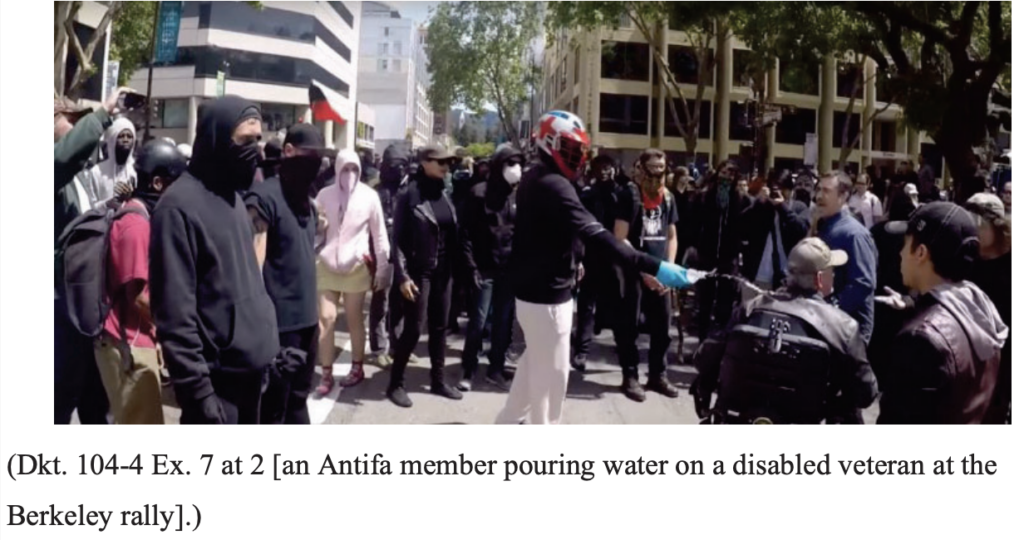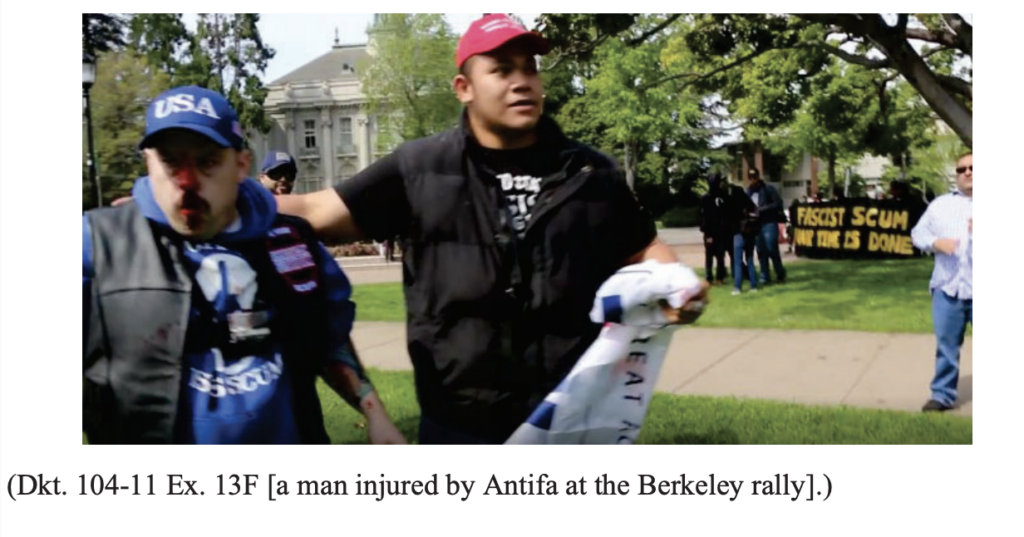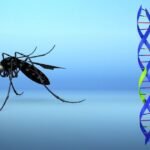
A judge in California threw out charges against two far-right political agitators, saying the federal government engaged in “selective prosecution” by charging right-wing rioters but not the far-left agitators they fought against, and who did the exact same thing.
Robert Rundo and Robert Boman attended a pro-Donald Trump “free speech” rally in Berkeley on April 15, 2017, as members of Rise Against Movement (RAM), a “far-right, white nationalist” group that engaged in violence against left-wing groups like Antifa. One of those groups was By Any Means Necessary (BAMN), which would descend upon right-wing events to shut them down and start fights.
But after prosecutors filed an emergency motion to appeal, the Ninth Circuit had one of the right-wingers arrested the next day, February 22. Robert Rundo “is to remain in custody pending resolution of appellant’s motion to stay release pending appeal. No lower court may order his release absent further order of this Court,” the appeals court wrote.
Judge Carney objected to the fact that federal prosecutors charged only right-wing participants, even though left-wing agitators performed identical conduct or worse at the same event—which prosecutors’ own evidence acknowledged.
“No individuals associated with the left, who engaged in anti-far-right speech and violently suppressed the protected speech of Trump supporters, were charged with a federal crime for their part in starting riots at political events. That is textbook viewpoint discrimination,” he wrote. “Most telling in this case is the government’s silence as to why it never pursued a case against a single member of Antifa or related far-left groups with respect to their violent conduct at pro-Trump events.”
“Defendants have established selective prosecution. There is no doubt that the government did not prosecute similarly situated individuals. Antifa and related far-left groups attended the same Trump rallies as Defendants with the expressly stated intent of shutting down, through violence if necessary, protected political speech. At the same Trump rallies that form the basis for Defendants’ prosecution, members of Antifa and related far-left groups engaged in organized violence to stifle protected speech,” he continued.
“Of the 20 people arrested at the April 2017 Berkeley rally, the government charged only Defendants and other members of RAM under the Anti-Riot Act. The government charged no members of Antifa, BAMN, or other far-left groups under the Anti-Riot Act for their use of violence to shut down the rally,” the judge wrote.
“To put it simply, RAM and Antifa, which both appear to use violence to silence protected speech, are identical in material respects—the only difference is their speech and beliefs,” the judge wrote.
“By many accounts, members of Antifa and related far-left groups engaged in worse conduct and in fact instigated much of the violence that broke out at these otherwise constitutionally protected rallies to silence the protected speech of the supporters of President Trump. That is constitutionally impermissible. The government cannot prosecute RAM members such as Defendants while ignoring the violence of members of Antifa and related far-left groups because RAM engaged in what the government and many believe is more offensive speech,” he wrote.
The judge’s order included photographs of Antifa engaging in violence at the same protest for which the defendants were charged.

Evidence showed that left-wing protesters had descended upon the pro-Trump rally to start a fight, and did so. “One man punched a Trump supporter, threw him onto a park bench to continue the beating, and was in the process of striking him until law enforcement intervened… A young woman used pepper spray and hit Trump supporters, explaining that she felt ‘like fighting a white bitch today.’ Police detained one Antifa member who had an improvised explosive device,” the judge wrote, citing reports from local police.
Rundo and Boman said that more than 10 Antifa agitators were pummeling a black man wearing a red hat, and they sought to protect him.
In October 2018, Nick Hanna, the US Attorney for the Central District of California, boasted that “four local members of white supremacy groups face federal charges in attacks at political rallies.” The case was being handled by the Terrorism and Export Crimes Section of the DOJ’s National Security Division.

The government charged the men under a rarely-used law called the Anti-Riot Act. The judge said that the law has often been criticized as dubious, and was created in the 1960s by partisans who had the intent of imprisoning communists and black agitators. The law makes it a federal offense when interstate commerce or communication, including telephones, is used to plan what later becomes a riot.
In 2019, the court dismissed the charges, finding that the Anti-Riot Act violated the First Amendment. But in March 2021, the appeals court overturned the ruling. In August 2023, Rundo was extradited from Romania.
On February 21, Carney again dismissed the charges based on their second argument, of selective prosecution.
Rundo was released from jail, but prosecutors immediately filed an emergency appeal to the Ninth Circuit, asking for Rundo to be arrested and held without bail, and saying they thought he might flee through the southern border if he was not.
On Feb. 23, appeals judges wrote that “Defendant-Appellee Robert Rundo has been arrested” and that lower courts were prohibited from releasing him as the government’s appeal proceeds.



